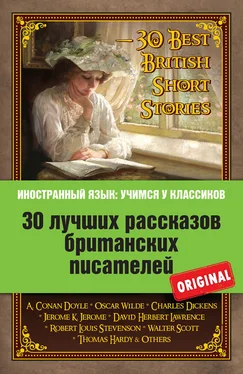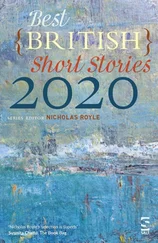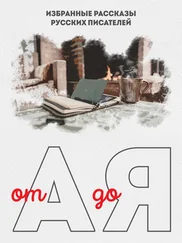Austin– Alfred Austin (1840–1921), a British poet and journalist, a Poet Laureate
halma– a board game, like checkers, invented in 1880
Boxing Day– December 26, the day after Christmas; traditionally boxes of gifts were given to servants, employees and the poor on this day
Walter Scott
The Tapestried Chamber
Lord Cornwallis– Charles Cornwallis, the 2nd Earl of Cornwallis (1738–1805), a British soldier and statesman known for his defeat at Yorktown during the American Revolution
Yorktown– a historic town in southeastern Virginia, USA, noted for the siege of 1781 during the American Revolutionary War
the wars of York and Lancaster– also known as the Wars of the Roses, civil wars between the Houses of York and Lancaster for the English throne in 1455–1485
Elizabeth– Elizabeth I (1533–1603), queen of England in 1558–1603; her reign is traditionally called the Elizabethan аge
bizarrerie– peculiarity
Diogenes(the 4th century BC) – an ancient Greek philosopher known for his rejection of luxury and original way of life
Saint Germain(s)– a western suburb of Paris, on the left bank of the Seine, with park and palace built for Louis XIV in 1673
William– William IV (1765–1837), king of Great Britain and Ireland (1789–1830) who accepted the Reform Act of 1832 which reduced the power of the crown over the parliament and the government
Whig and Tory– two main political parties of the 18th century; the term ‘Whig’, of Scottish origin, was applied to non-conformists who insisted on reducing the power of the king, and the Irish term ‘Tory’ was applied to those who supported hereditary rights to the throne
Robert Louis Stevenson
The Body-snatcher
Debenham– a town in Suffolk, a historic county in eastern England
Edinburgh– the capital of Scotland, located in southeastern Scotland
bon vivant– a merry man who enjoys life ( French )
wynd– lane, side street
quid pro quo– this for that ( Latin )
gig– a light, open, two-wheeled one-horse carriage, first appeared in the 17th century in Paris
cras tibi– the second part of the expression ‘Hodie mihi cras tibi’ – ‘Today for me, tomorrow for you.’ ( Latin )
Bram Stoker
The Judge’s House
the Jacobean style– the style in literature, art and architecture of the Jacobean age, the time of the reign of James I of England (1603–1625); the Jacobean age followed the Elizabethan age, and the two had very much in common.
Assizes– court sessions held in every county of England to try civil and criminal cases before High Court Judges
Mathematical Tripos– a highly competitive mathematical contest at the University of Cambridge
Senior Wrangler– a student who takes first-class honours in Mathematical Tripos
Saint Anthony(251–356) – a Christian monk who lived in Egypt, practised ascetic life and withstood many temptations in his legendary combat against the Devil; Saint Anthony is considered the founder of monasticism
divertissement– here: distraction from work ( French )
Conic Sections, Cycloid Oscillations, Principia, Quaternions, Thermodynamics– famous scientific and philosophical works on mathematics and physics
Dracula’s Guest
Dracula– a fictional character, a villain with supernatural powers and vampire, invented by Bram Stoker in his famous novel; the character is based on Vlad III Dracula, prince of Wallachia, known for his cruelty
Munich– the capital of Bavaria, the land in southern Germany, founded in 1157
maître d’hôtel– hotel manager ( French )
Ja, mein Herr– Yes, sir ( German )
Walpurgis nacht– Walpurgis Night, a holiday on April 30, celebrated in northern Europe and Scandinavia; people light fires, sing and make loud noise to keep off the evil forces; on this night the witches are said to gather on Brocken, the mountain in Harz, Germany
copse– poet. coppice
Gratz– a city in southeastern Austria and the capital of Styria, founded in the 9th century
Styria– a state in southeastern Austria on the border with Slovenia
Balearic– from the Balearic Islands , an archipelago in the western Mediterranean Sea, in Spain; Majorca and Minorca are the main islands of the archipelago
Doric– a style of classical or Neoclassical architecture that is defined by the certain type of architectural elements, first appeared in ancient Greece
lethargy– 1) unconsciousness resembling deep sleep; 2) drowsiness, apathy, indifference, inactivity
carbine– a light, short-barrelled rifle invented in the 16th century; it is no longer a military weapon but a sporting one
Bistritz– a region and city of the same name in northern Romania, in the Eastern Carpathian Mountains
Oscar Wilde
The Remarkable Rocket
Aurora Borealis– also called northern lights, a luminous atmospheric phenomenon
Catherine Wheel, Roman Candle, Cracker, Bengal Light, Fire-balloon– objects used in pyrotechnic shows
Конец ознакомительного отрывка
Купить книгу












